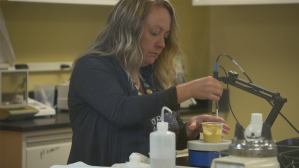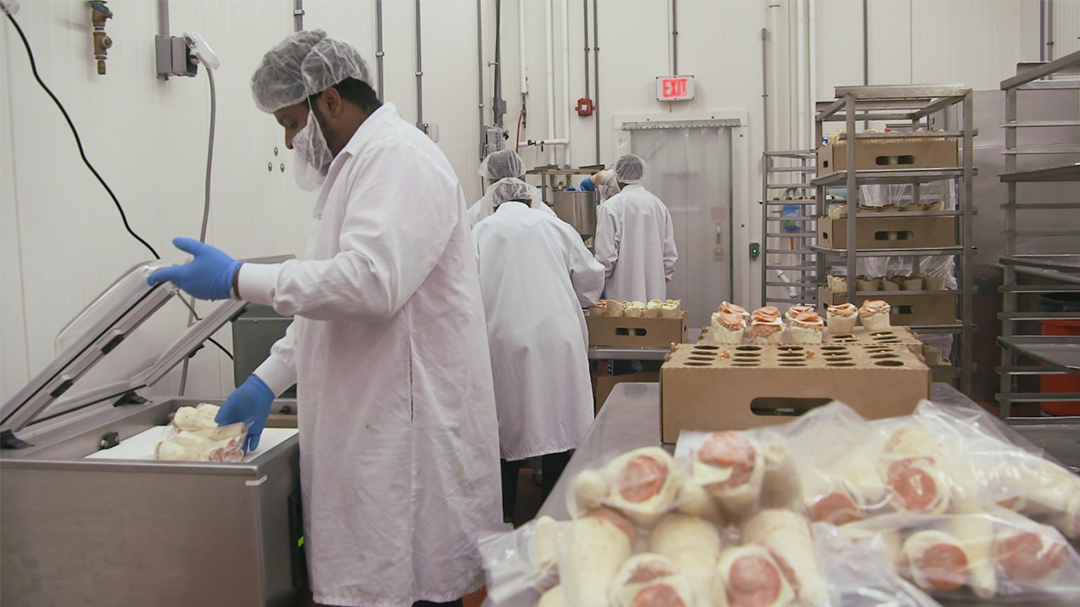John Tolley, December 21, 2019
A Fat Darrell from the RUHUNGRY grease truck. A Ripper from Rut?s Hut. A delicious plate of disco fries to sop up the evening. Or maybe sliced Pork Roll - or, is it Taylor Ham - egg and cheese on a Kaiser roll.
When it comes to food, New Jersey is no slouch of a state. Heck, Saveur magazine even named it one of the ?most edible states? in the nation. And, it?s a legacy that extends to Rutgers, The State University of New Jersey. You?ve likely tasted the iconic fruit bred there, the Rutgers Tomato, maybe topping a Trenton Tomato Pie, or, more likely, in a can of Campbell?s Tomato Soup.
Securing Rutgers? place at the cutting-edge of comestibles is the Food Innovation Center (FIC), a highly specialized incubator that has been dedicated to making edible ideas a reality, ?from concept to commercialization,? for 20 years.
?This is a place of true innovation,? says Nolan Lewin, director of the Food Innovation Center in Piscataway, NJ. ?People come to us with ideas, with concepts, with a thought, a spark. And, they say, ?Hey, can you help us put this into a package?? And we look at it, we evaluate it from a couple of different perspectives. We actually do develop products here in this building from a spark, an idea, all the way to a saleable product that can go out the back door.?
When the FIC is engaged by a business, there are a suite of services from which they can take advantage. On the business development side, they perform market analysis and customer research. On the product side, food technologists help refine a product?s sensory experience using the state-of-the-art test kitchen. And, on the manufacturing side, they?re equipped to make products scalable from small kitchen to manufacturing facility and develop catchy, effective packaging solutions.
While the average consumer has likely sampled numerous products that have been helped along by the FIC, there is one in particular that truly captured the zeitgeist.
?Well, one of our most famous and recent clients was the Impossible Burger,? says Peggy Brennan-Tonetta, Executive Director for Economic Development and Innovation at the New Jersey Agricultural Experiment Station. ?They were able to make it on the lab bench, but they had no idea how to scale this up into full scale manufacturing to be able to sell the product. They came here. We helped them with understanding how to manufacture the product. We helped them design the equipment, and we actually manufactured the Impossible Burger here for their first two years.?
That sort of business success is just what the FIC, which is a unit of the New Jersey Agricultural Experiment Station, hopes to accomplish in bringing delicious products to market. Their mission is to make available to entrepreneurs those resources that can help grow their business and, in turn, keep New Jersey?s economic engine churning.

To that end, the FIC opened a satellite facility in Bridgeton in far southern New Jersey. The area, once an agricultural powerhouse, has since fallen on hard times, explains Rich McArdle, executive director of the FIC. Rutgers? aim is to develop economic growth in the agricultural sector as well as the local economy, create jobs and expand economic growth.
?Rutgers has always been involved in promoting economic development for the state and has a number of different departments and a number of different specialties that relate to economic development,? says McArdle. ?The concept, and it's still valid today, is that by helping people who have this interest and especially passion to develop food and beverage products and put them in market, those are the people who are going to create the jobs of tomorrow in this particular industry in New Jersey and the region. It does work, it is working and it's actually advancing.?
That sounds pretty delicious to us.







